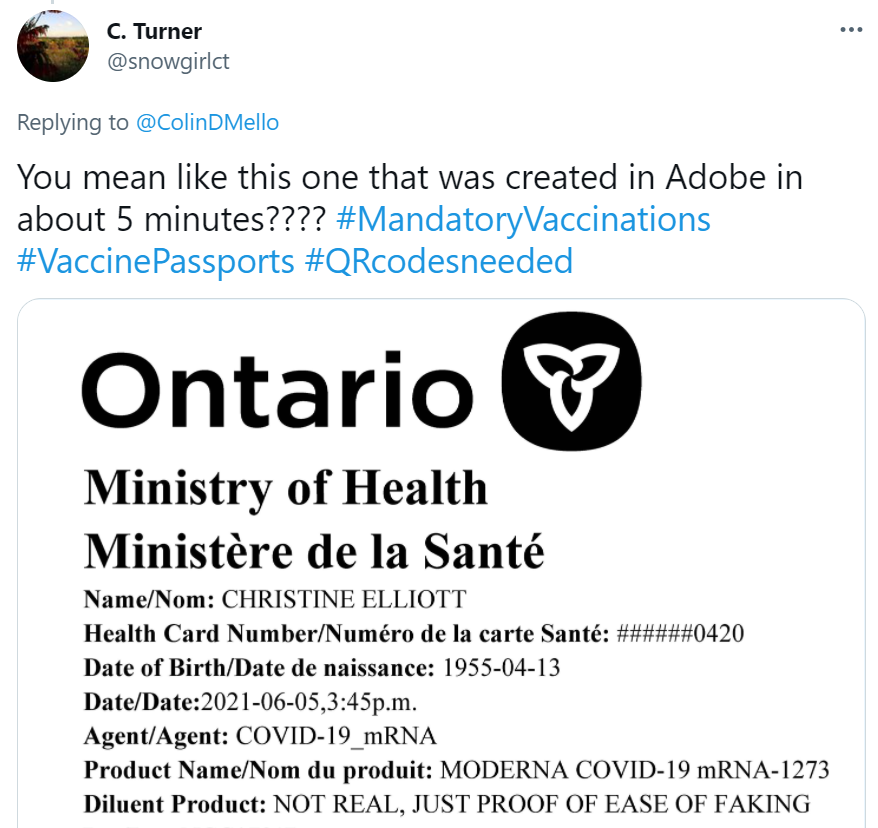Despite a growing chorus of experts and advocates who say COVID-19 vaccine passports are needed in Ontario, the health minister suggested government-issued cards would be susceptible to fraud.

Christine Elliott once again repeated on Tuesday the government’s assertion that a made-in-Ontario vaccination certification card is unnecessary.
Elliott, along with other provincial officials, have repeatedly said the PDF people receive following their second vaccination is all the proof that’s needed within Ontario.
Many argue it isn’t enough, including business advocates who want the province to take pressure off of employers.
“Once you get into something more than that, a card or whatever nature that is, then you end up with all kinds of other considerations about production,” Elliott said.
Elliott also said fraud prevention is a concern, equating government-issued vaccination cards to the previous Ontario health cards.

“We’re now getting rid of the red and white Ontario OHIP cards for some of those reasons,” she said. “Those problems would occur with smart cards as well.”

Get weekly health news
Elliott’s comments regarding forgeries quickly drew reaction on social media.
One person posted a spoof vaccination document under Elliott’s name to Twitter, noting it took them only five minutes to doctor it using Adobe software.
It imitates the current vaccine receipts sent out after someone receives a shot in Ontario, which the health minister said should provide enough proof of vaccination within the province.
Shabnam Preet Kaur, a forensic document examiner with Docufraud Canada said a PDF document, like those the provincial government is standing by, is both easy and convenient to forge.
“If you want to manipulate that PDF, that document with no security features, with a plain background, that can be very easy to manipulate,” said Kaur.
“You can add or delete stuff into it using Adobe Photoshop or there are a number of softwares online that are free.”
A government-issued card with more than one security feature would require more skill to manipulate, and Kaur said those changes are easier to detect than on a PDF on a plain background.
She said a QR code would be much more difficult to manipulate and should be the preferred method of verifying a document.
“Scanning a QR code is actually better, more difficult to manipulate, rather than a document in a PDF,” she said.
Quebec is one of only a few provinces that are planning on implementing vaccination passports for some daily activities.
When it rolls its system out on Sept. 1, it will be using an app-based system that scans QR codes sent to people who have been vaccinated.







Comments